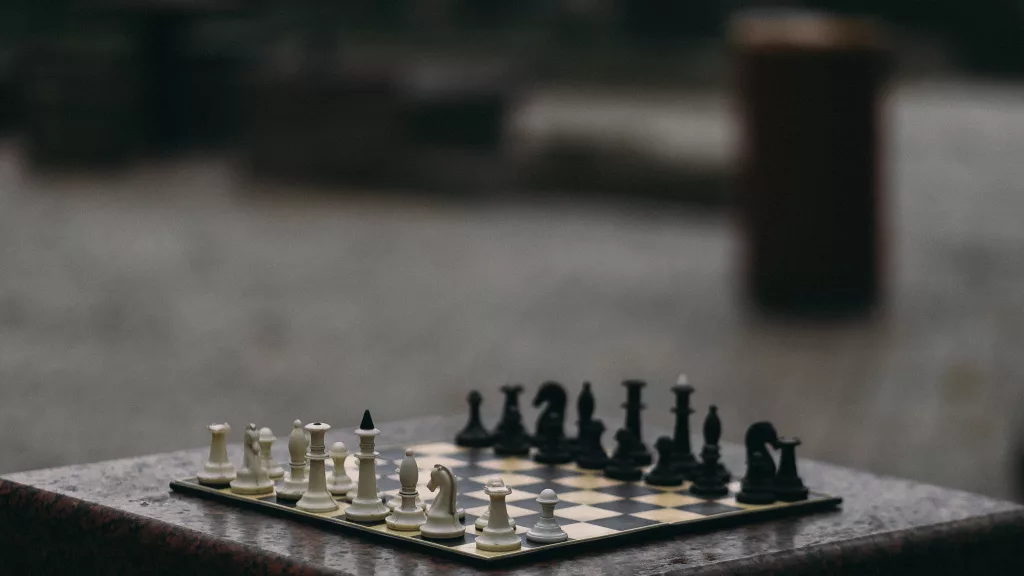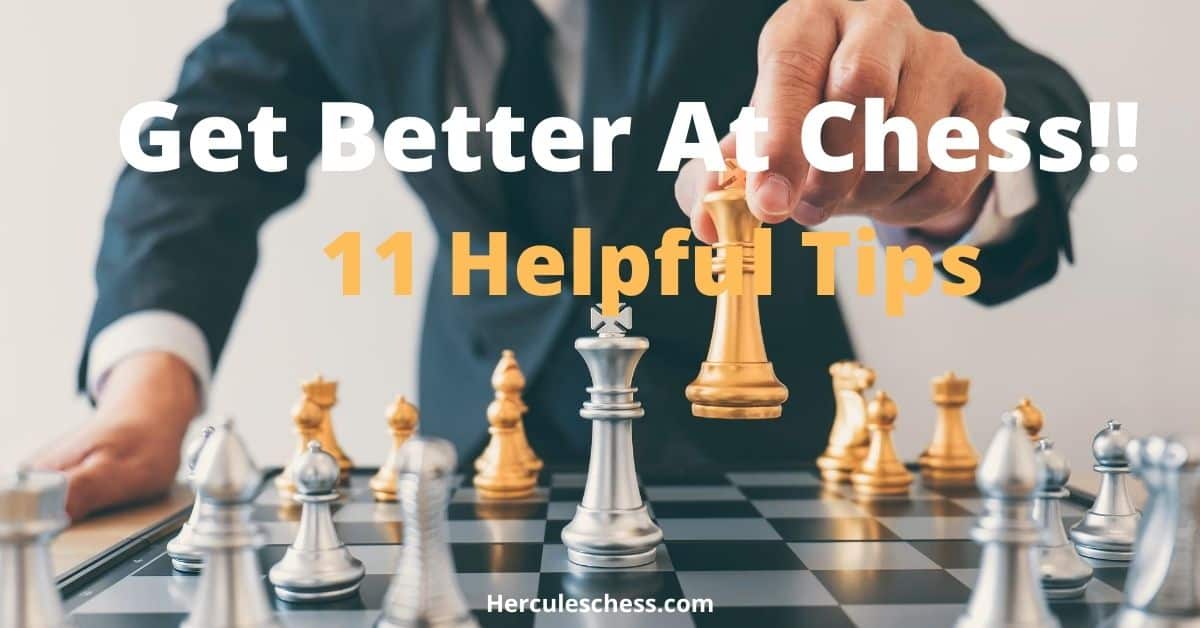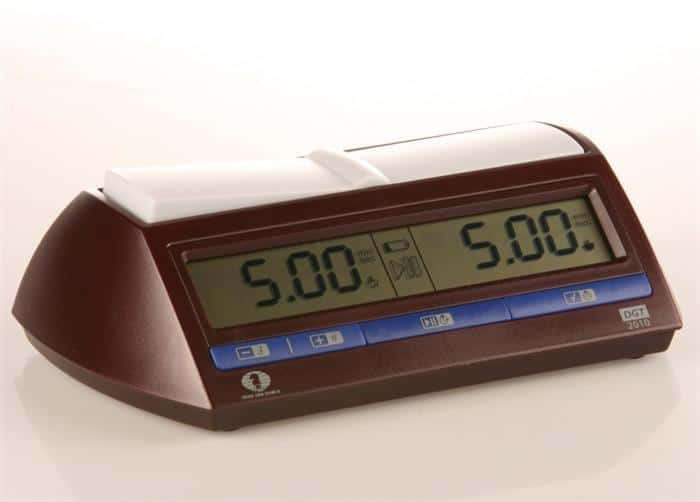In every chess position, there are many different moves you can make, some good, and some bad. The best possible move you can make is usually classified as a brilliant move and is denoted by 2 exclamation marks. These moves are usually moves that sacrifice a piece in the process of putting yourself in a winning position. Then there are best/excellent moves which are denoted by a star. These moves are usually the best engine moves in the situation. Then there are inaccuracies/mistakes, which are usually moves that put you in a worst positional state than you were before that move. Finally, there are blunders. In this post, we intend to answer the simple question: what is a blunder in chess?
Blunders in chess are moves that either make you lose material in a way that puts you in a losing position or moves that put you in a positional disadvantage that is far too large to overcome.
Tactical Blunders
One way that you can blunder is by falling into tactical traps or by failing to find losing or winning tactics like forks, pins, and deflection. In the position below, we see a position that’s commonly seen in the Queen’s Gambit Declined.
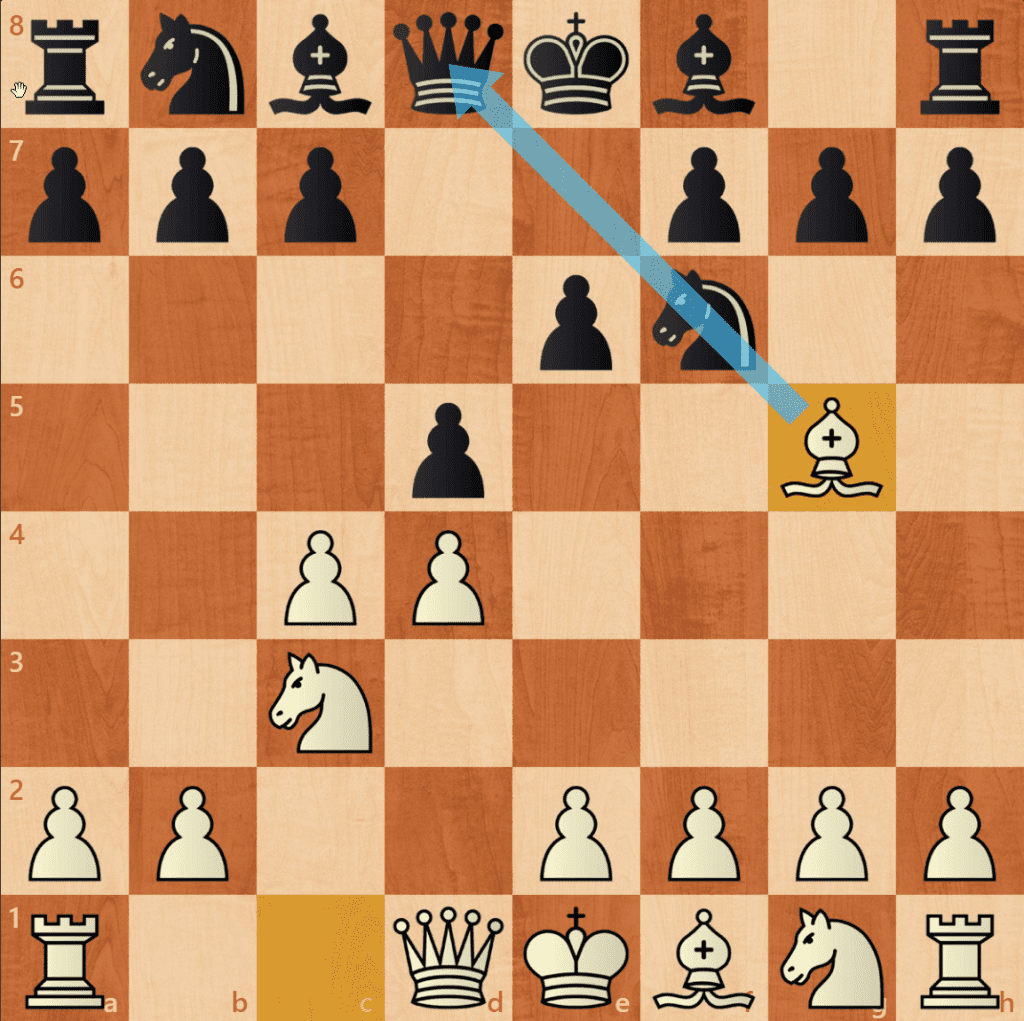
As you can see, the black knight is pinned to his queen, moving that knight without putting either white’s queen or king under attack would be a classic tactical blunder.
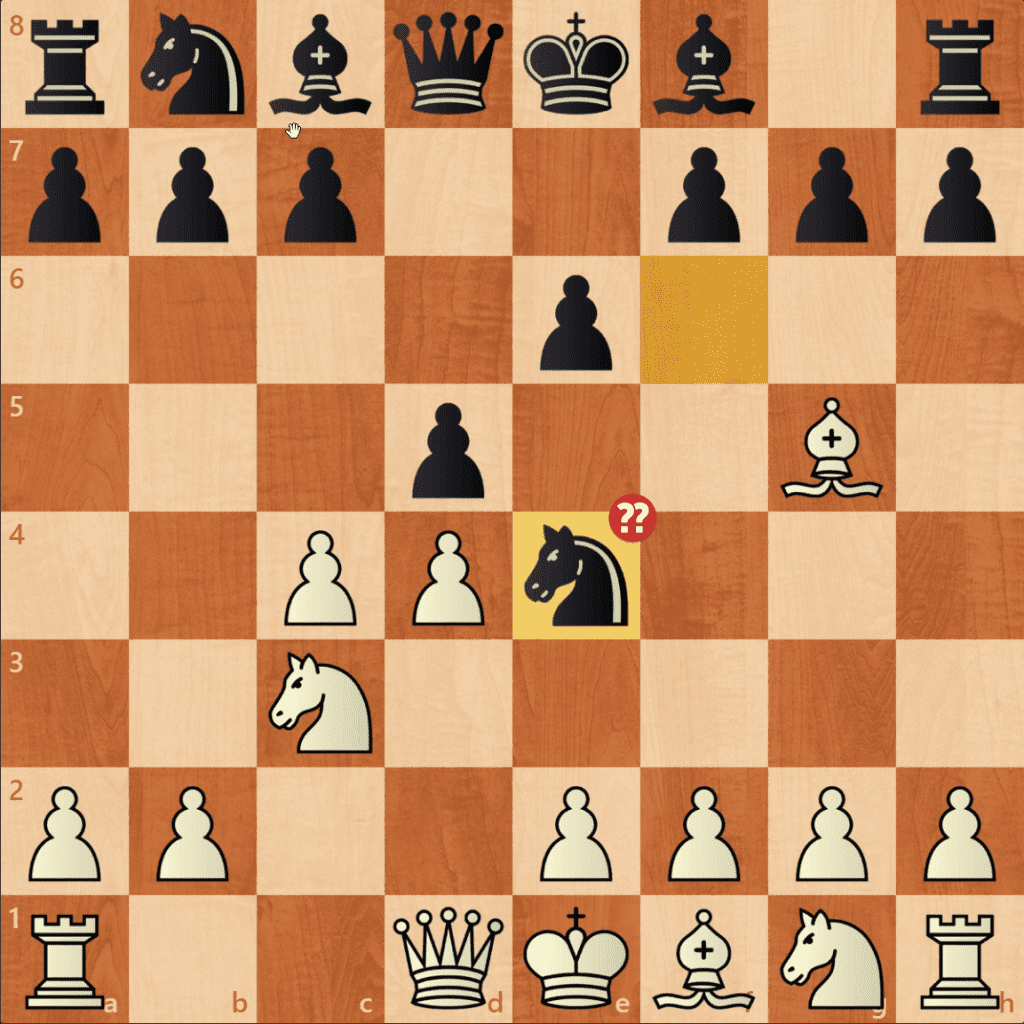
Now that the knight has moved, the white bishop can now capture the black queen putting white at an insurmountable material advantage.
Positional Blunder
Another blunder that you can make is a positional blunder, one that puts you in a significant losing position. One common way you can do this is by failing to protect against a back rank mate.
In the position below, the white rook on the first rank is protecting the king from a back-rank mate.
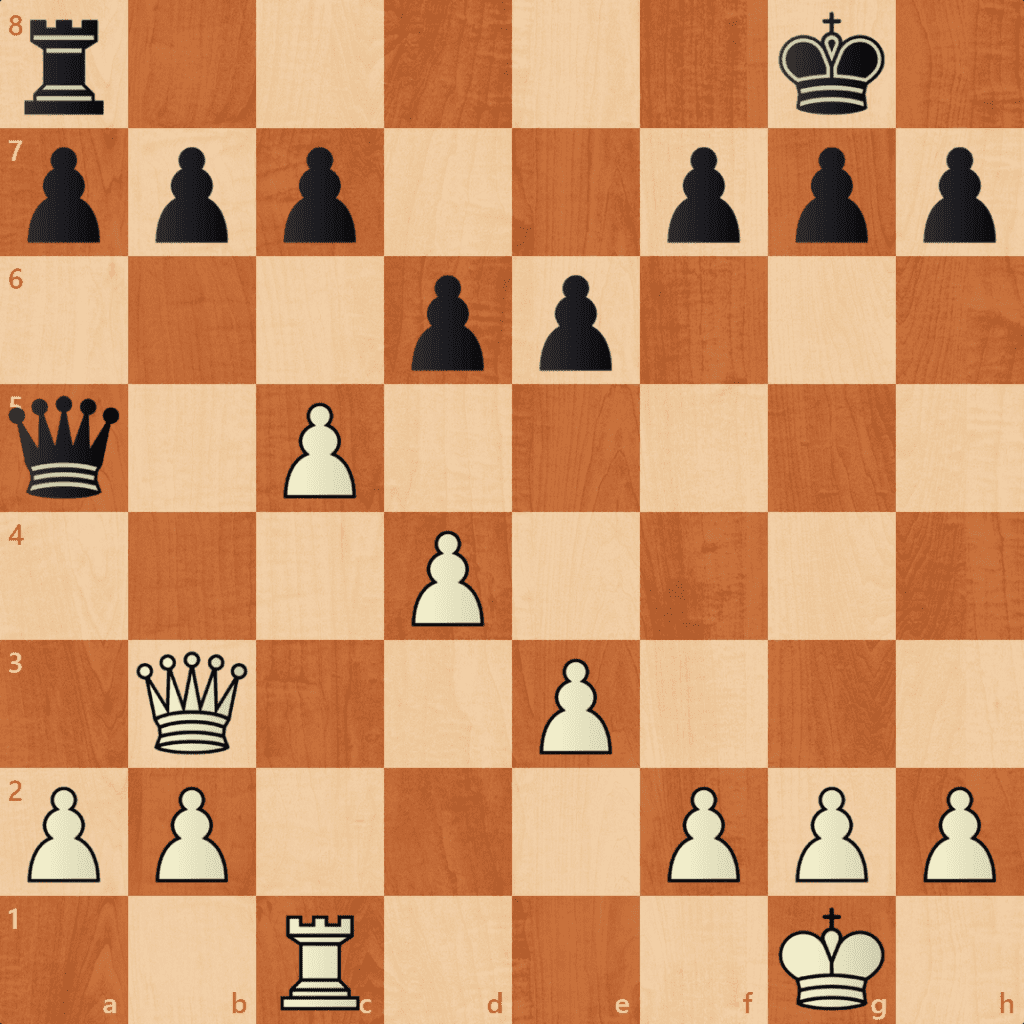
By moving the white rook off the first rank, he has now blundered checkmate, losing the game immediately.
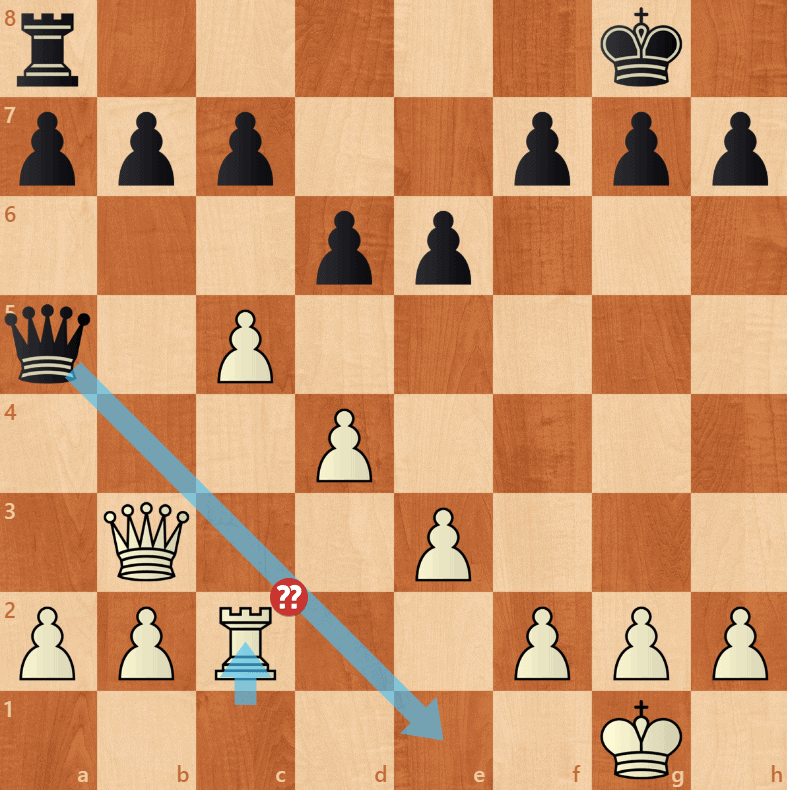
How Blunders Affect Your Games
One of the most common ways beginner chess players lose games is by making blunders like leaving pieces undefended or by missing common tactical motifs. Learning how to analyze positions and prevent common blunders should be a top priority for all beginners. This will ensure that you only lose games due to being outplayed positionally rather than blundering a piece and losing.
How to Prevent Blunders In Your Games
A lot of blunders occur due to the player either not being ready for the game they are playing or due to a lack of focus and concentration. Making sure you are playing in a quiet focused environment would help make sure you are in the best state of mind for playing chess. Playing a few warmup games or puzzles is also a good idea.
One way to prevent easy tactical blunders is by practicing tactical puzzles on a website like Hercules Chess. Chess puzzles help you with pattern recognition for when you face similar positions in a real game.
Another way to prevent blunders is by analyzing your previous games, finding places where you blundered, and keeping them in mind to prevent you from making the same mistakes again.
Do Grandmasters Blunder?
One question you may have is: do professional chess players like Grandmasters also blunder? The simple answer is yes, but not in the same way you or I would blunder. Grandmaster blunders are usually very subtle to beginner and intermediate chess players but crushing at the Grandmaster level.
One blunder that occurred recently in a competitive tournament was played by Grandmaster Hans Niemann against Grandmaster Shamsiddin Vokhidov in the 2022 FIDE World Rapid Chess Championship. Hans blundered a simple fork on move 11, resigning shortly after.
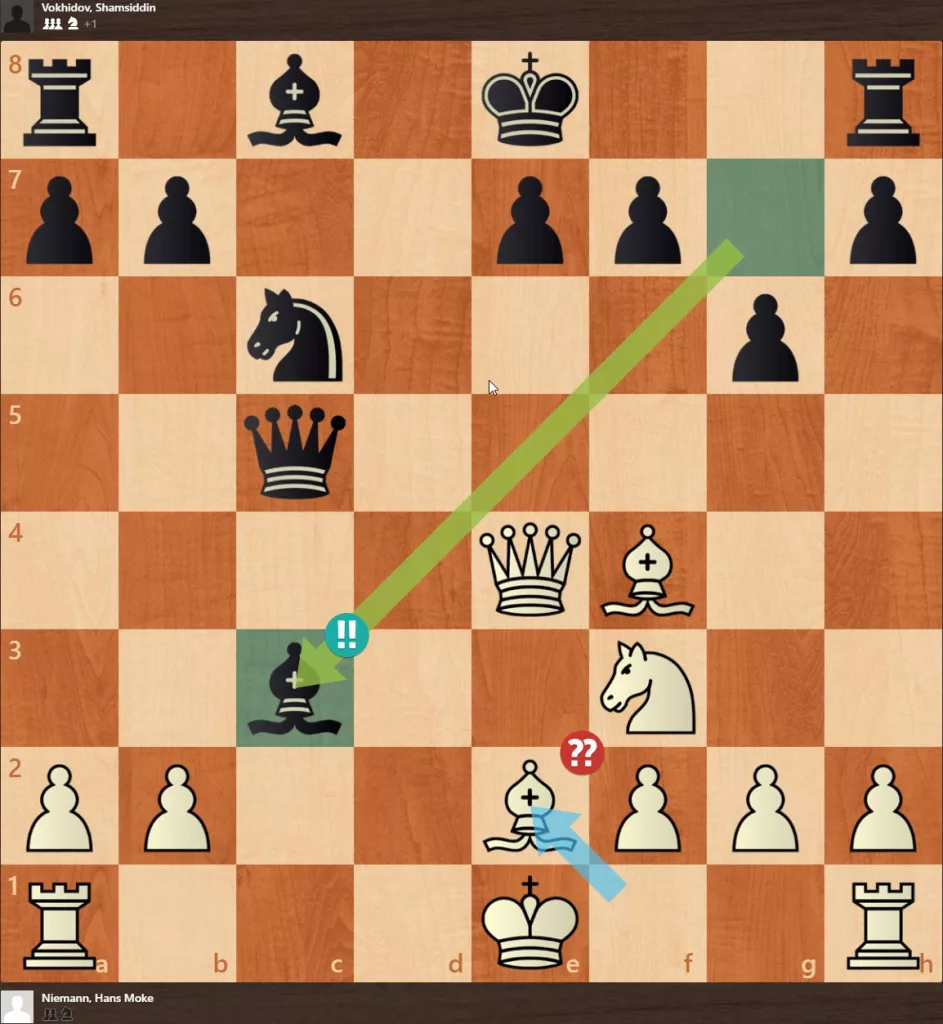
Conclusion
In conclusion, blunders in chess are moves that put you at an insurmountable disadvantage in a game. These moves can be tactically losing, positionally losing, or simply hanging a piece or checkmate. Everyone blunders, even grandmasters, but your blunders are going to be very different compared to a Grandmaster’s blunder. Preventing blunders in your games is super important if you want to improve your chess. You can prevent blunders by practicing your tactical skills through puzzles, by ensuring you are in a good environment to play chess, and by analyzing your previous games to learn from your common mistakes.
